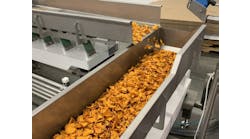Q. Are SQF standards taking a foothold in the food industry? We have a few customers looking to implement a program based on these standards and the required data/information from suppliers is not readily available.
A. Food processing and retailing consensus has made the Safe Quality Foods (SQF) Initiative the leading U.S. food safety standard. It was launched back in 1994 by the Food Marketing Institute (FMI), so it actually predates the Global Food Safety Initiative (GFSI), of which it now is a recognized part.
SQF and its attendant SQF Institute (www.sqfi.com) is one of nine programs recognized by GFSI. Since it comes from FMI, SQF does have origins with the retail side of the food business. But it is a fully integrated food safety and quality management protocol also covering growers, producers and processors.
Taking a foothold? Most definitely. When your largest customers (Walmart, Kroger, etc.) demand that you do it, that’s more than a foothold. But are consumers getting it? I’m not so sure.
You specify SQF. From Food Processing’s own research (January’s Manufacturing Trends Survey – www.foodprocessing.com/articles/2011/manufacturingsurvey.html) 51 percent of respondents who had or were pursuing a GFSI-recognized certification were using SQF. The others were British Retail Consortium (25 percent), IFS (14 percent), FSSC 22000 (12 percent), Dutch HACCP (7 percent), Synergy 22000 (4 percent) and others (10 percent). Except for “others,” all those are recognized by GFSI.
SQF standards can provide the food industry with a very important supply chain certification. Back in the 1990s, ISO systems allowed all members of the food supply chain the opportunity to certify that not only did they have a processing standard for their portion of the food production system but they were in fact conforming to their standards. This certification was a third-party, external recognition of compliance to an internal quality process. This ISO process allowed the dialog between suppliers to be more transparent and put a quality focus on the process methods used.
Today, as consumers becomes more educated regarding the global nature of their food supply, they are looking for some form of assurance that the food they are buying has been produced in conformance with some level of quality and food safety – regardless of where it was grown, processed, packaged or shipped.
From the primary grower to the food processor and through distribution to the retailer, consumers want to know their food was handled in a high-quality fashion and is safe to consume. Because the safety of their foods has been assumed (despite regular food safety scares), the consumer has a very real problem in understanding why this request should cost anything additional. Therein lies the problem. The consumer thinks that if you need to increase the total supply chain cost to provide this assurance, then are food suppliers saying they are not doing this in the first place? It is not that this type of assurance will not be provided. The questions are: how and by whom?
The SQF Institute is attempting to provide this level of certification. Building on an ISO type model, the organization offers to all members of the food supply chain the opportunity to provide the consumer with this information. But will consumers get it? And will they accept additional costs for a higher level of food safety? We’ll see.

